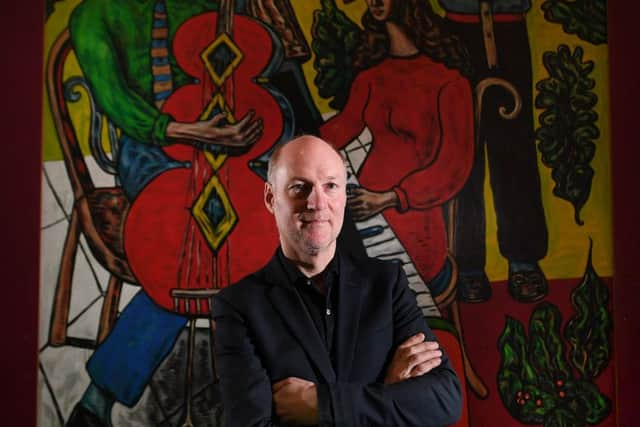Climate change concerns forces Scottish festival to scale back on overseas acts
Celtic Connections has signalled a major shift in direction amid behind-the-scenes concern about the carbon footprint of the Scottish Government-funded event.
As the global reputation of Celtic Connections has grown since its launch in 1994, so has its showcase of overseas acts, with at least 25 countries represented in the line-up in recent years.
Advertisement
Hide AdAdvertisement
Hide AdHowever, the strong international flavour may have to become a thing of the past for the event, which features around 2,000 musicians performing in 300 events across Glasgow, after the climate crisis was identified as the “biggest challenge” facing Celtic Connections over the next few years.


The line-up for this year’s festival, which runs until 2 February, includes acts from Canada, Senegal, Burma, Finland, India, Cameroon, Lebanon, USA, France, Spain, Guinea, Australia, Portugal and Mali.
Among the attractions in the festival line-up are American concert violinist Tessa Lark, Malian stars Fatoumata Diawara and Les Amazones d’Afrique, Quebecois supergroup Le Vent Du Nord and Portuguese fado singer Ana Moura.
Donald Shaw, creative producer of Celtic Connections, was speaking at the opening of the festival, which runs for another week, taking part in the unveiling of Storm, Scotland’s largest puppet, which was created out of recyclable materials and was paraded through Glasgow city centre to the Royal Concert Hall.
Shaw said: “The biggest challenge to Celtic Connections, in terms of the way it is now, is how we look at international artists.
“Festivals like ours are going to have to have a serious think about our carbon footprint.
“We cannot bury our head in the sand. It’s not really enough to fly 300 artists from all around the world and justify it on the grounds that art is important.
“Festivals like this one are going to have to think very seriously about whether we can do that anymore.
Advertisement
Hide AdAdvertisement
Hide Ad“I think we will have to make a statement about reducing international travel and the number of international artists will be reduced unless someone comes up with a solution which appeases the climate emergency.
“We have to do it because it is the right thing to do. It is the responsible thing to do. We all have to take responsibility for what is happening at the moment.”
Shaw, who has been at the helm of the festival since 2007, said UK-based artists outwith Scotland had already been told they should avoid air travel to attend. Analysis is also under way over the impact of Scottish acts flying in to Glasgow from Orkney, Shetland and the Outer Hebrides.
Shaw, who has been at the helm of the festival since 2007, said: “We really need to have all the evidence in front of us.
“We’ve already discussed in the office what the difference is between using a CalMac ferry from Stornoway to Ullapool and the flight between Stornoway and Glasgow.
“If it is very clear that as flights cause by far the worst damage to the environment, then we have to reduce them.
“There are alternative ways to travel, particularly from Europe. The answer may be to plant acres of trees for every artist we bring in on a flight. I think we need to be very aware of the environmental challenges. I know some musicians are already reducing their international travel.”